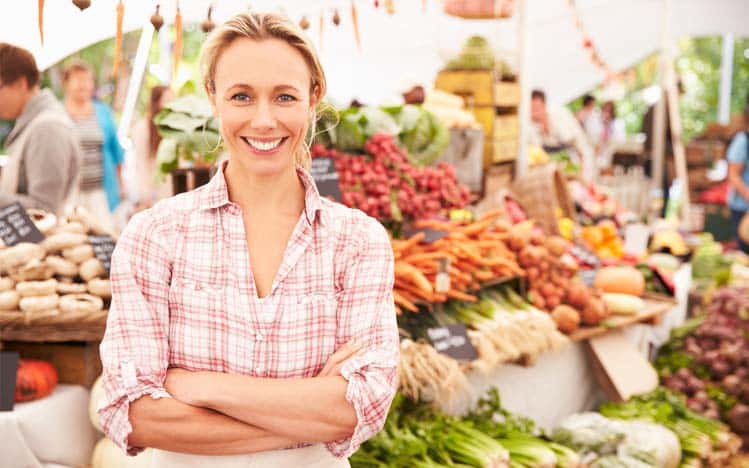Catie's Blog
Eating for the Season
Nothing is better than nourishing yourself with fresh, organic and local produce. There are many reasons to embrace this fashion of eating, a few of them being that locally and seasonally grown food is more nutritious for you and your family, kinder to the environment, tastier, and supprisingly most of the time, can be easier on your wallet.
Non-locally grown food and flavor:
When food is not in season locally, it’s either grown in a hothouse or shipped in from other parts of the world, and both affect the taste. When transporting crops, they must be harvested early and refrigerated so they don’t rot during transportation. They may not ripen as effectively as they would in their natural environment and as a result they don’t develop their full flavor.
Distance and nutrient depletion:
The author of Eat Here: Homegrown Pleasures in a Global Supermarket, says that, “if you harvest something early so that it can endure a long distance shipping experience, it’s not going to have the full complement of nutrients it might have had.” There has even been research that has shown that nutrients such as vitamin C degenerate substantially even just a few days after being picked.
Highly questionable methods of preservation:
In addition, the FDA has condoned the irradiation on foods when transporting produce. Food irradiation acts by damaging the target organism’s DNA beyond its ability to repair or grow. Spoilage-causing microorganisms can no longer proliferate and continue their malignant or pathogenic activities. Insects do not survive, or become incapable of reproduction. Plants cannot continue their natural ripening processes. and preservatives (such as wax) to protect the produce which is subsequently refrigerated during the trip.
Note that these questionable methods of prolonging the freshness of perishable foods has not had adequate testing to assess their safety. You can help to diminish the use of there practices by not purchasing foods that are inorganic and irradiated. Please be aware of of things like this that are taking place right under our nose. With our awareness and strength, we can become responsilbe consumers to help preserve our health and the health of our children, community, and planet.
The Victory of Variety!
When you commit to eat organic, local, and seasonal foods as much as possible, you can begin to enjoy and appreciate the variety of mother nature. Depending on the region you live in, you will find different things in season due to the climate and what has traditionally been grown there. However, usually during the fall time, there are a many crops being harvested, such as: squash, apples, endive, garlic, grapes, figs, and mushrooms. Winter time, root vegetables are expected, but you can also look forward to citrus and the hearty green, kale. Upon entering summer time, we can spoil ourselves with the abundance we are offered, like sweet peas, corn, peaches, cucumbers, tomatoes, summer squashes, and green beans.
Find out what is in season for you:
If you are interested in finding out what is special to your region then you can find out on www.localharvest.org, which will direct you to where to find your local farmers’ markets.
Grow it yourself!
Since it is most likely not realistic to expect everything you want to eat at your local markets at certain times of the year, you may want to consider starting your own garden. This way you know what is going into your food. When you have a garden, you can start practices such composting, which promotes less waste and utilization of the scraps and extras of the food that you do not eat. Gardening can also act as a healthy de-stressor in your life. Tending and nurturing a garden can be just as good for your mental health as it is for your physical health.




